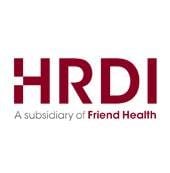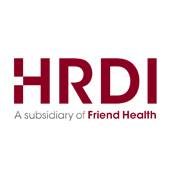Cornerstone Recovering Community - 112th Place
Drug Rehab Center in Chicago, Illinois
Cornerstone Recovering Community - 112th Place is an addiction treatment facility in Chicago, IL that specializes in helping individuals struggling with substance abuse and/or alcoholism by providing tailored treatment plans designed by highly qualified professionals, such as inpatient, outpatient, dual-diagnosis, intensive outpatient and sober-living programs, to assist them on their journey to sobriety and a healthier life.
About Cornerstone Recovering Community - 112th Place in Illinois
Cornerstone Recovering Community - 112th Place is an alcoholism, substance abuse, opioid addiction, and dual diagnosis treatment facility located in Chicago, Illinois. With a focus on helping individuals suffering from addiction, their facility offers various levels of care, including inpatient, outpatient, dual-diagnosis, intensive outpatient, and sober-living/halfway options. Their goal is to provide comprehensive treatment and support to help individuals overcome substance abuse and achieve long-term recovery.
At Cornerstone Recovering Community - 112th Place, individuals struggling with alcoholism, substance abuse, opioid addiction, and dual diagnosis can find the necessary help and support. Their treatment methods encompass a holistic approach, addressing both the physical and psychological aspects of addiction. Through their inpatient and outpatient programs, individuals can receive personalized care, specialized therapy sessions, and support groups tailored to their unique needs. Additionally, they offer intensive outpatient and sober-living/halfway programs to ensure a smooth transition back into society while maintaining a supportive environment. With a focus on addressing the underlying causes of addiction, Cornerstone Recovering Community - 112th Place aims to help individuals develop coping mechanisms and life skills to sustain their recovery journey.
Genders
Ages
Modality
Additional
Conditions and Issues Treated
Substance Abuse + Addiction Treatment at Cornerstone Recovering Community - 112th Place
Many people need to recover from substance abuse to live a healthy life. In the end, if you can get through all the steps: detoxifying your body, rehabilitation after some time or when needed (depending on the type), and recovery while also receiving therapy support throughout the process, it can be worth it.
A detoxification center is a common place to start the recovery process from substance abuse. With your body and mind restored, you can continue to heal without the lingering effects of drugs.
Opioid + Opiate Addiction Treatment in Chicago, IL
Many people who struggle with opioid addiction need to attend specific programs like methadone , Suboxone or Vivitrol clinics.
These types of programs will provide the patient with legal, prescription medications that can help them overcome their cravings for illegal opioids like heroin or fentanyl . If the patient has a chronic condition like Hepatitis C, they must undergo treatment before they can begin taking these medications.
Dual-Diagnosis Treatment at Cornerstone Recovering Community - 112th Place
Dual Diagnosis is a specific relationship between two or more disorders that have the same symptoms and can sometimes be treated together. This is used in the treatment planning process when dealing with drug addicts. Dual diagnosis can be viewed as a chronic medical condition that has comorbid psychiatric disorders.
Although addiction and a mental illness may have separate symptoms that are not easy to detect, they often go hand in hand. Many times, drug abuse is a direct result of the mental illness. In other words, treating the addiction will not resolve all of your issues. Unless you also treat the underlying mental illness, you will not be successful in achieving sobriety.
Levels of Care Offered
This center offers a variety of custom treatment tailored to individual recovery. Currently available are Dual-Diagnosis, Inpatient, Intensive Outpatient, Outpatient, Sober-Living / Half-Way, with additional therapies available as listed below.
Inpatient Treatment Program
Inpatient treatment is an intensive program that takes place when a patient checks into a rehabilitation facility. The treatment includes detoxification and counseling sessions, which are round the clock. Outpatient treatments are also available, but inpatient care is advised as the first step of rehabilitation.
Intensive rehab ensures the patient stays in a substance-free atmosphere, improving treatment success rates. The patient participates in group therapy for motivation from other patients who have overcome addiction. Family members are also involved in providing emotional support throughout the program.
Intensive Outpatient (IOP)
An intensive outpatient program is usually the first phase of addiction treatment. It provides relief for those who are addicted, but are not ready to commit to an inpatient setting. Typically, the patient lives at home and is able to work or go to school. IOPs consist of a daily 3 to 5-hour program, and there is a required number of hours per week. Most patients go to IOP between 20 and 40 hours per week. The patient attends group counseling and individual therapy throughout the duration of treatment. They also meet daily with their therapist to discuss how it’s going and where they are in the recovery process.
The goal here is to teach patients healthy coping skills, such as stress management and identifying thoughts and behaviors that lead to relapse. The implementation of these skills will be useful as the individual transitions into the next phases of treatment.
Outpatient Program
An outpatient treatment program is set up to help with alcohol or drug addiction, or a co-occurring disorder. The patient must attend the Illinois facility for their therapy and other programs but are able to return home each night. The frequency of mandatory attendance decreases after much of Cornerstone Recovering Community - 112th Place‘s program is complete.
Sober Living Homes are an option for those who have completed a treatment program within the past several months. However, it isn’t advisable to use this as a permanent living arrangement because it can lead to a relapse .
The goal of a sober living home is to provide a supportive environment for recovering addicts so they don’t need to return to their previous lifestyles. The homes will not accept residents who are still using drugs or alcohol, and those living in the house must follow a set of rules dictating how they should behave to avoid relapsing.
Therapies & Programs
Family Counseling
Family therapy will also help families realize that the addiction is not their fault. For many years, people blamed themselves for an addict’s behavior and felt that they had done something wrong. This is not the case. Addiction is a disease, and it can strike anyone, even if their life seems fine from the outside. It can bring a lot of shame to a family when they have an addict in their midst, but if everyone is open and honest with each other, then they can help everyone stay in recovery.
Group Therapy is utilized by drug treatment centers like Cornerstone Recovering Community - 112th Place to provide the recovering drug addict with a platform to talk about their feelings and experiences. It also provides for an opportunity to learn from other addicts who have successfully overcome their addiction.
Group Therapy is employed in lectures, seminars, or discussion groups (the latter two are typically conducted as “therapy groups”). It is recommended that all group members be recovering addicts for this type of therapy to work (though it does not exclude others with lived experience).
Trauma therapy is a clinical process that helps individuals deal with mental stress often caused by traumatic events. It is generally done for children, teenage victims of sexual assault, and war veterans. The therapist helps the person identify, understand and work through the problem. This is done with the help of talking about it in group or one-on-one counseling sessions. Therapists use relaxation, role-playing, art, and music to help the person open up about what is bothering them.
Payment Options Accepted
For specific insurance or payment methods please contact us.
Additional Details
Specifics, location, and helpful extra information.
Chicago, Illinois 60628 Phone Number(773) 821-8608 Meta DetailsUpdated November 25, 2023
Staff Verified
Cornerstone Recovering Community - 112th Place Patient Reviews
There are no reviews yet. Be the first one to write one.
Chicago, Illinois Addiction Information
In 2016, more than 2,350 Illinoisans died from drug overdoses. More than 5,500 deaths annually occur in Illinois due to the abuse of alcohol and other drugs. 7.17% of Illinois residents reported using illicit drugs in the past month (2018). Substance abuse costs the state approximately $3.5 billion every year.
Drug misuse can lead to other serious health problems, including HIV/AIDS or hepatitis C infection and liver disease. Chicago's main drugs of abuse include heroin, cocaine, and methamphetamine. Field sobriety tests can be used to determine if someone is driving under the influence of drugs or alcohol. There are about 872 drug treatment centers in the city, and the number of people seeking help for addiction continues to rise.
Treatment in Nearby Cities
- Geneva, IL (38.9 mi.)
- Edwardsville, IL (234.0 mi.)
- Addison, IL (25.1 mi.)
- Princeton, IL (97.8 mi.)
- Tinley Park, IL (11.9 mi.)
Centers near Cornerstone Recovering Community - 112th Place
The facility name, logo and brand are the property and registered trademarks of Cornerstone Recovering Community - 112th Place, and are being used for identification and informational purposes only. Use of these names, logos and brands shall not imply endorsement. RehabNow.org is not affiliated with or sponsored by Cornerstone Recovering Community - 112th Place.






